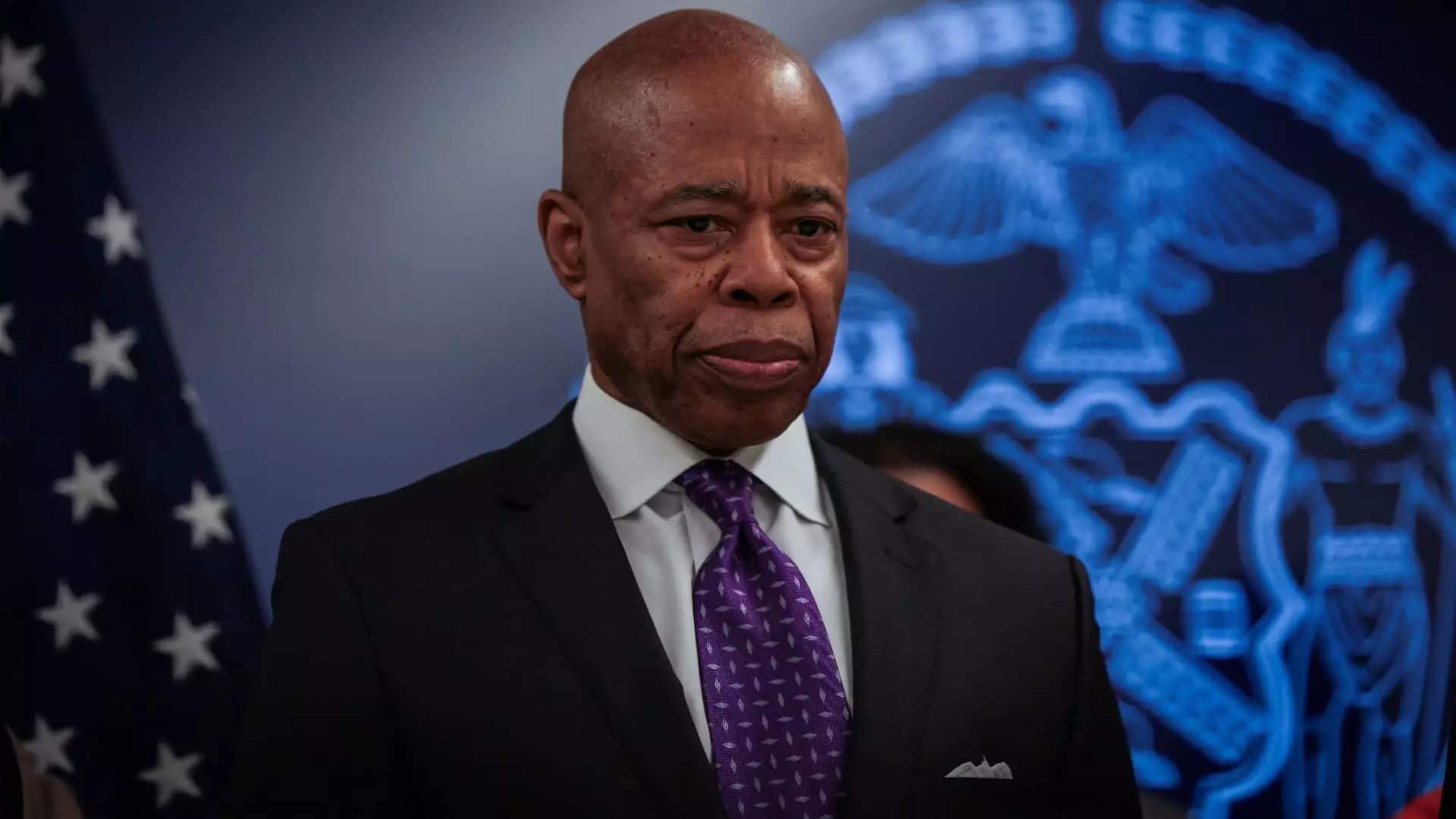The ongoing legal saga concerning New York City Mayor Eric Adams has transformed into a high-stakes political drama, intertwining legalities, partisan conflicts, and the ever-evolving landscape of American politics. As the intricacies surrounding the case unfold, what was initially a straightforward corruption allegation has spiraled into a multifaceted crisis, revealing deeper rifts within political spheres and raising questions about the integrity of the judicial process itself. With the Democratic mayor’s trial sidelined indefinitely, the implications of this controversy stretch well beyond courtroom proceedings, threatening to reshape the political landscape of America’s largest city.
A recent ruling from U.S. District Judge Dale Ho brings the case back into the spotlight. While he declined to dismiss the charges against Adams outright, he did order a delay in proceedings, inviting arguments from an appointed outside counsel, Paul Clement. This decisive move underscores the complexities surrounding the case, notably the intervention of the Justice Department, which has called for the dismissal of charges that Adams faces in accordance with broader political maneuvers.
The genesis of the charges against Adams lies in allegations that he accepted bribes from Turkish nationals in exchange for political favors. This effort to indict a sitting mayor has attracted substantial scrutiny, particularly due to the implications it holds for federal and local relationships. The political atmosphere thickens when one understands that these developments are part of a larger narrative that involves shifting allegiances and power plays from both sides of the aisle.
The situation is made all the more significant by its implications for Democratic solidarity in New York. It’s no secret that political loyalties can be fleeting; the evolving relationship between Adams and Donald Trump illustrates that. Recent visits to Trump’s Florida residence and an increased rhetorical alignment with the former president complicate the narrative of party loyalty. Critics fear that dismissing the charges against Adams, especially in the context of alleged quid pro quo agreements concerning immigration policies, might leave the mayor entangled in the web of Trumpian politics, raising alarms among fellow Democrats.
Significantly, the charges against Adams come at a crucial moment in his mayoral campaign. His non-guilty plea against accusations of corruption attempts to create a narrative of innocence and defiance against a perceived persecution angle, which he attributes to his public critique of Biden’s immigration stance. This intricate dance around innocence, blame, and political allegiance illustrates the precarious nature of public life, where leaders tread the line between accountability and ambition.
At the core of the controversy lies an essential question: at what point does prosecutorial discretion become an issue of public interest? Deputy Attorney General Emil Bove’s rationale for seeking charges dismissal hinges on the assertion that ongoing legal challenges could detract from Adams’ effective governance. However, this raises concerns about the ethicality of intertwining politics and prosecutorial decisions—do political motivations dilute the efficacy and morality of judicial processes? Such queries have sparked backlash, prompting calls from several Democratic figures for Adams to resign—signaling an internal crisis where political affiliations can shift like quicksand.
Moreover, the resignations of several prosecutors in protest against Bove’s orders underscore the turmoil within the Justice Department. Their departure rather than compliance speaks volumes about the moral implications surrounding these legal decisions. As the legal landscape continues to evolve, one must consider the potential fallout—both for Adams’ administration and the broader socio-political climate across the nation’s urban centers.
As the dust settles from this latest chapter of legal and political conflict, it remains evident that the case against Eric Adams is not merely a personal trial but rather a test for leadership in precarious political conditions. The outcome of this saga may very well set a precedent for how allegations of corruption intersect with political maneuvering in the future. With heightened scrutiny from party members and a judicial system grappling with its own integrity, the unfolding drama surrounding Adams will resonate well beyond the borders of New York City. It serves as a somber reminder of the intricate interplay between law, politics, and, ultimately, the trust placed in public officials—an essential pillar in the foundation of a functioning democracy.


Leave a Reply